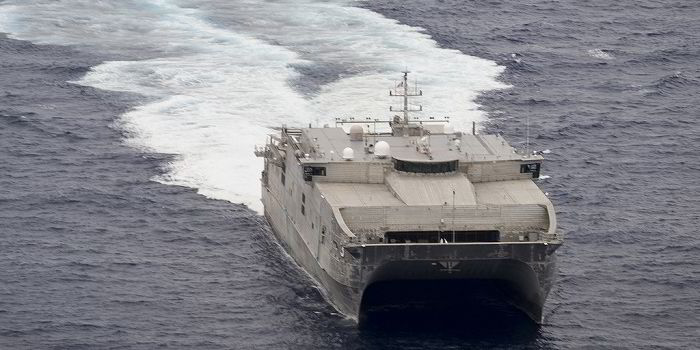The Singapore-based Southeast Asia Cooperation and Training Exercise (SEACAT) comes as piracy appears to be increasing in the region.
SEACAT focuses on regional cooperation to address shared maritime security challenges like piracy and other illicit activities at sea, by bringing together liaison officers (LNOs) from Singapore, Brunei, Indonesia, Malaysia, the Philippines, Thailand and the US to collaborate and execute practical maritime responses to multiple realistic scenarios.
"SEACAT is a great venue for multiple nations to come together in a realistic training environment and work through a number of real-world maritime security challenges," said US Navy Rear Admiral Charlie Williams.
"This multilateral cooperation enhances readiness so we can better coordinate our response during contingencies and crises."
During the exercise the LNOs receive simulated reports of suspect vessels in the Straits of Singapore and Malacca, the Andaman Sea or the South China Sea.
After sharing information from all available sources, such as Singapore's Information Fusion Centre, Malaysia's International Maritime Bureau (IMB), or the Philippines' Coast Watch System, the LNOs will develop and implement response plans during a concurrent field training exercise.
Based on the situation, aircraft and ships from participating navies will investigate and conduct on scene boardings as necessary.
This year's exercise continues the trend of increasing complexity into the exercise, as representatives from the Bangladesh Navy will observe the exercise from Singapore.
SEACAT began as an anti-terrorism exercise in 2002 but has since expanded to include piracy, smuggling and other illicit activity.
"Whether the problem is piracy, smuggling, or other illicit activities at sea, responding to these challenges requires effective communication and coordination, which is developed by working together through realistic training," said a US Navy spokesperson.
A small coastal tanker is hijacked in Southeast Asia every two weeks on average, according to a recent report by the IMB.
The region accounted for 55% of the world's 54 piracy and armed-robbery incidents during the first quarter of 2015, the IMB said.
IMB figures also show 100 global piracy incidents reported since May 28, along with an increase in hostage taking over last year.



